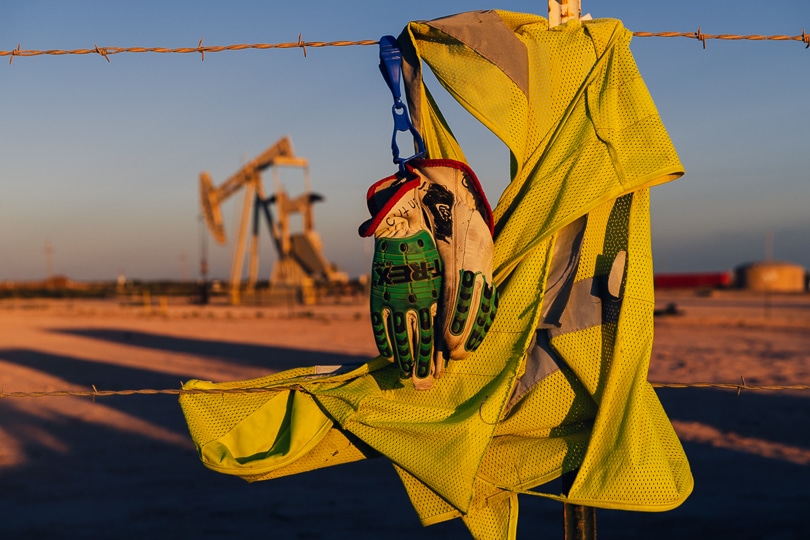Just 13 financial players out of hundreds assessed from around the world have restrictions in place against funding oil and gas industry expansion, according to the Oil and Gas Policy Tracker.
This means that more than 96% of the 369 financial institutions tracked have no such restrictions at all.
“Despite António Guterres’ recent call on all financial institutions to abandon fossil fuel finance and invest in renewable energy, most banks, insurers, and investors continue to support companies with ruthless expansion plans,” said Lucie Pinson, founder and director of Reclaim Finance, a think tank pushing for climate action within the financial sector.
The United Nations secretary-general has become increasingly outspoken about the failure of the world’s financial sector to stop investing in new fossil fuel projects and avoid the worst impacts of climate change. “New funding for fossil fuels is delusional,” Guterres said on June 14.
The energy crisis exacerbated by the war in Ukraine has seen a perilous doubling down on fossil fuels by the major economies.
— António Guterres (@antonioguterres) June 14, 2022
New funding for fossil fuels is delusional.
It will only further feed the scourge of war, pollution & climate catastrophe. https://t.co/ppM3pOaqna
First launched in March by Reclaim Finance and 16 other NGOs, the Oil and Gas Policy Tracker initially focused on 150 of the world’s largest financial institutions. Now, the tracker has broadened its reach, assessing the fossil fuel policies of 369 banks, insurers, and investors. It primarily focuses on restrictions on new oil and gas projects and the companies developing them and strategies to phase out oil and gas.
According to Reclaim Finance, the NGOs created the tracker to assess the gap between financial players’ concrete policies for addressing the climate crisis and ineffective pledges.
The tracker found that 158 financial players have committed to carbon neutrality in their investment portfolio by 2050 by joining the Glasgow Financial Alliance for Net Zero, a coalition launched last year for financial institutions to accelerate the transition to net-zero.
However, most of the companies assessed by the tracker have not adopted a policy restricting oil and gas finance in at least some way, such as by not supporting unconventional oil and gas development. More than two-thirds of these financial institutions and insurers lack any such policy at all.
While climate activists, environmental groups, and the UN are upping the pressure on the financial sector to stop supporting fossil fuel expansion, few within the sector have effective policies in place to align with the Paris Agreement’s climate threshold.
“It is alarming to find out less than 4% of the financial institutions rated in the tool have a robust policy tackling oil and gas expansion. All the others, even those members of the Glasgow Financial Alliance for Net Zero, fail to align their business with a 1.5°C pathway,” said Clément Faul, Research & Analysis manager at Reclaim Finance.
According to the 2022 report “Banking on Climate Chaos,” also published by Reclaim Finance together with Oil Change International and others, the world’s 60 largest banks have funneled $4.6 trillion to the fossil fuel industry since the adoption of the Paris Agreement in 2016. Just last year, fossil fuel financing reached $185.5 billion and was directed towards major fossil fuel players like Saudi Aramco and ExxonMobil, two of the 100 companies most responsible for expanding the fossil fuel sector.
According to the report, only four U.S. banks, JPMorgan Chase, Citi, Wells Fargo, and Bank of America, account for one quarter of all fossil fuel financing in the last six years.
“Any bank supporting any company that is expanding fossil fuels is driving climate chaos,” the report states.
Even the typically conservative International Energy Agency (IEA), the global energy watchdog, has made it clear: no new oil and gas projects if we want to limit global warming to 1.5°C. “There is no need for investment in new fossil fuel supply in our net zero pathway,” states the IEA in its “Net-Zero by 2050” roadmap for the energy sector.
And there is precedent. In October 2021, drawing on the public database Global Oil & Gas Exit List, La Banque Postale, one of the 50 largest banks in the world, immediately suspended financial services for all companies with oil and gas expansion plans and committed to leaving the oil and gas sector entirely by 2030. Its subsidiary, CNP Assurance, also stopped all new direct investment in upstream oil and gas developers. According to Reclaim Finance, both are setting “an international precedent for every other financial institution.”
“For too long, the financial services sector has enabled the world’s fossil fuel addiction,” said the UN’s Guterres in May. “It is now time for financial service providers to accelerate the shift to renewables. They have the power – and the responsibility.”
Subscribe to our newsletter
Stay up to date with DeSmog news and alerts







